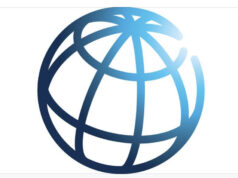October 4, 2016
The White House 1600 Pennsylvania Ave NW Washington D.C.20500 Dear President Obama: I write this letter to bring to your attention the human rights situation in Ethiopia. I am confident you are aware of the heavy hand the government employs against peaceful petitions, demands and demonstrations by aggrieved citizens. Unless the situation is prudently addressed now, it will have unpredictable consequences to Ethiopia and the surrounding region.
Ethiopia has been a close ally of the U.S. for most of the time since 1903 when the early relationship of Treaty of Amity and Trade was signed and Ethiopia was accorded a status of Most Favored Nation (MFN). Ethiopia has been the largest recipient of U.S. assistance in Africa and, for most part, remains a dependable ally of the U.S. who contributes immensely to global and regional stability dating back to the Korean War. Currently, in its critical point, Ethiopians and those with goodwill urge U.S. to be on the side of Ethiopian people and distance itself from a regime that is guilty of corruption, divisiveness and gross human rights abuses.
Recently, institutions such as Amnesty International, Human Rights Watch and the U.S. State Department questioned the condition of human rights in Ethiopia which has reached a dire stage. Human rights abuses and the stratagem of divide and rule has been employed by the Ethiopian government for the past twenty-five years. However, the people have reached a limit now and can no more shoulder abuses and are openly challenging the statuesque peacefully.
Examples of the current Ethiopian government’s undemocratic rule and abuse of power include:
1. Continuously rigged elections. Last year the government claimed it won all seats in the national parliament. Opposition leaders, journalists and all those who questioned the undemocratic policies were imprisoned. In 2009, Charities and Societies Proclamation was passed which crippled individuals and organizations who spoke out against the government. As a result, Ethiopian prisons became overcrowded. Recently in Clento prison, one of the largest prisons in Ethiopia where political prisoners are kept, fire engulfed the prison under a questionable and suspicious circumstance. Those who tried to escape from the raging flame were shot from the prison towers. Even those who were under the government’s custody and protection were not secure but brutally murdered.
2. Turmoil and uprisings in the Oromia region. The government uprooted the Oromo people from their land without any consultation or adequate compensation. The uprooted victims of land grabbing were promised schools, hospitals, basic amenities and assistance, but all proved to be empty promises. The victims became laborers earning less than a $1.00 a day; barred from grazing land and water spots for their cattle.
3. The conflict in the Gondar Amhara region is instigated by the deliberate move of the government to incorporate the Welkait-Tsegede region with Tigrai territory by claiming that the region belongs to Tigri area — home of the country’s ruling elite. The local people and former governor of the region during the Imperial era, have stated that the region has never been part of Tigri, but shares contiguous borders. Tigrigna speakers, however, have historically flocked to the questionable region in search of jobs and opportunity that the region provides. Some opted to remain there; intermarried with the locals and became bilingual similar to other ethnic groups who settled in other regions of Ethiopia.
4. The Tigri region itself has become one large prison where the voice of the people has been suffocated and disempowered.
5. The Tigri People’s Liberation Front (TPLF) axe has also fallen on the Afar people, North East of Ethiopia, whose territory boarders the Red Sea. The Afar people are also up in arms with the government for its sinister plan to bring the area within Tigri region. The Afar people are purposely excluded from their region’s business and are relegated to be silent onlookers. Opposition to the government’s policy is unravelling throughout Ethiopia.
6. Perhaps the gravest of all is that the government has pitted one ethnic and religious group against each other, since it came to power in 1991, in order to splinter and weaken citizens and remain in power unchallenged. The government has no intention of building bridges between ethnic and religious groups but only advances the narrow interests of the people in power.
7. The much heralded economic achievement has only benefitted government officials and their cronies. Corruption has instantly produced wealthy people without any track record of earning wealth through legitimate means. TPLF’s business enterprises have full monopoly in the nation and remain unchallenged.
The Ethiopian government remains in power by invoking fear that if it is out of power genocide awaits. Ethiopians have coexisted in comparative peace and harmony for centuries and that is deliberately down played by the government. The popular slogan during the current uprising is: “The blood of the Amhara is that of the Oromo” and “the blood of the Oromo is that of the Amhara” and so forth; thus demonstrating the bond that ties Ethiopians together. Genocide is a dangerous weapon in the hands of sinister governments and not in that of innocent people. History proves that. The fear is that the Ethiopian government could unleash one ethnic group against the other by using its own people and/or those employed as killers for cash in order to instigate violence and justify its ill-claim.
Finally, the ethnic-based government claims that it is a stabilizing force in the unstable Horn of Africa region and protects the national interest of western countries. Unfortunately, the government is disestablishing Ethiopia. Ethiopians have already started fleeing to neighboring countries, who are also beset with their own problems, trying to escape from the government’s special force trained to shoot to kill. The Ethiopian government is exploiting the geo-politics of the country and misinforming the international community. The uprisings of the recent months are a clear testimony to the fallacy of TPLF’s thinking and false self-glorification. The current uprising in different part of the country is spearheaded by young people who knew only this government. Most have come of age and all the promises they were fed did not materialize. This, by itself, tells the government’s failed policy and unrealized promise.
U.S. foreign policy towards the Ethiopian government must change. The reality in Ethiopia cannot be sustained and angry citizens are rising up against the government and demanding their rights which have been tramped for twenty-five years. The tolerance of the Ethiopian people has reached its limit. I would therefore urge you, Mr. President, to have your administration’s foreign policy towards Ethiopia reevaluated for the best interest of both countries that have sustained durable and cordial relation for one hundred and thirteen years. Please, Mr. President, do not leave office without demonstrating that you are with the right side of history and with Ethiopians, not the government that has miserably failed its own people.
Help establish peace in this troubled country and unpredictable region. Ethiopian needs a hand now to keep from further sliding into human, economic, and political catastrophe that could haunt the World. Ethiopians across the World have a moral and historical responsibility to serve as a voice for the voiceless Ethiopians in Ethiopia who are daily suffering, killed, tortured by the government and are humiliated and disempowered. The great people of this great country deserves much better.
Respectfully submitted,
Getachew Metaferia, Ph.D.
Professor of Political Science
Morgan State University
1700 East Cold Spring
Lanes Baltimore, MD 21251
Getachew.metaferia@morgan.edu
Professor of political science and Author of Ethiopia and the United States: History, Diplomacy and Analysis, New York: Alogora Publishing 2009.
























